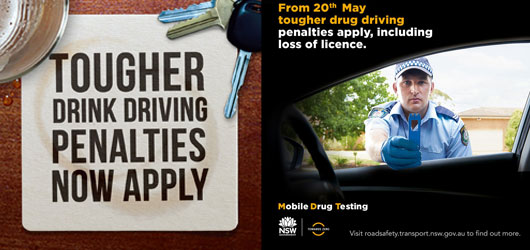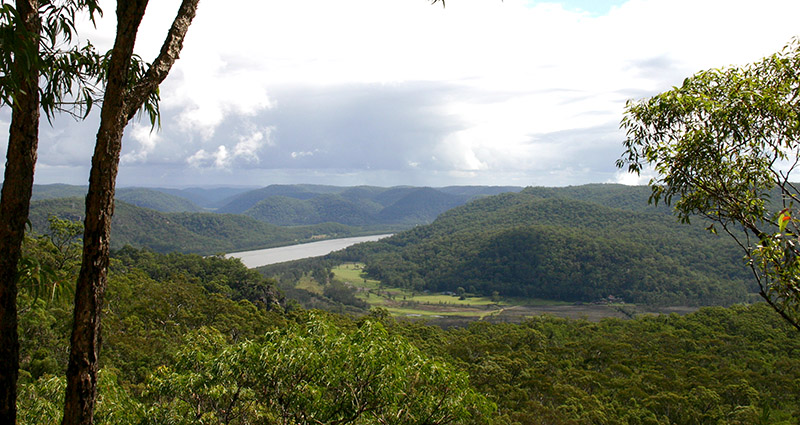New Drug and Drink Driving Penalties

As of Monday 20 May, 2019 the NSW Government has introduced updated drink and drug driving penalties.
The new penalties and licence sanctions have come into force for drink driving offences, and for the offence of driving with the presence of an illicit drug.
Important things to know about the rule
- Driving with the presence of drugs or an illegal level of alcohol in your system is not only illegal, it’s extremely dangerous and puts your life and the lives of all other road users at risk.
- New penalties affecting drivers caught drink driving over the legal limit or drug driving are now in force (since 20 May 2019).
- Drivers who are first-time, lower range drink driving offenders will receive an immediate three month licence suspension and on the spot fine of $561.
- The reform means that any driver detected drink‐driving in NSW, at any level, including low-range, can lose their licence immediately.
- Drivers caught with illicit drugs present in their system for the first time will receive a $561 fine and a three month licence suspension if drug tests are confirmed.
- The change will streamline processes and ensure dangerous drivers are taken off the road.
- Alcohol related crashes claimed the lives of at least 68 people on NSW roads last year, accounting for 19 per cent of all road deaths, and included 55 lives lost on country roads.
- Fatalities from crashes involving a driver or rider with an illicit drug present in their system have accounted for similar levels of fatalities.
- This reform will ensure those who put their lives and the lives of others at risk, receive swift and certain penalties to help protect all road users.
- The latest change is one in a wave of drink and drug driving reforms introduced since July 2018 aimed at reducing the number of crashes and fatalities involving alcohol and drugs.
- These include the expansion of Mobile Drug Testing and inclusion of testing for cocaine, and expansion of the Alcohol Interlock Program to include mid-range offences.
- A public awareness campaign to help inform the community about the change began on 8 May.







